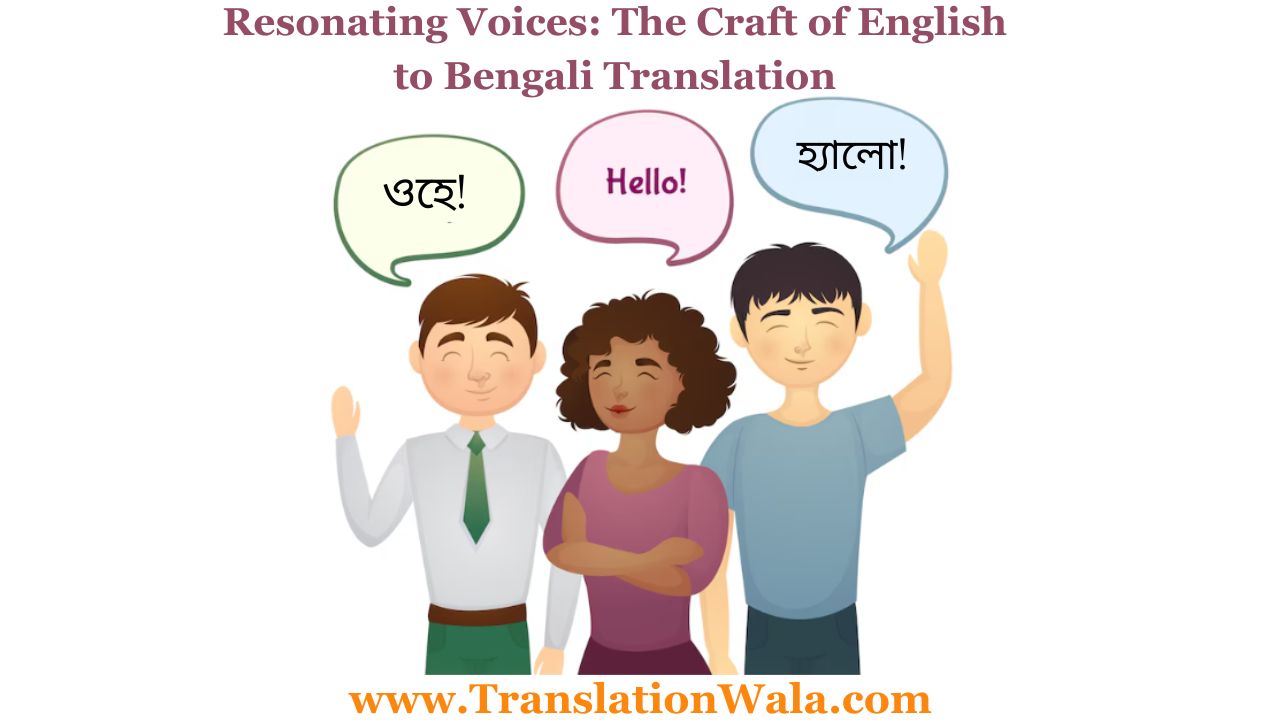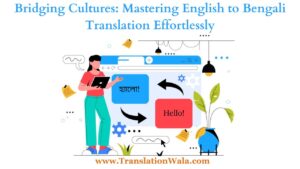It’s not easy to connect people who speak different languages. Not only do you need to be fluent in both languages, but you also need to know a lot about the cultural differences between them and be able to translate meaning as well as words. It is especially important to do this when English to Bengali Translation. Bengali is a lively and rich language with a long literary history. It needs a translator who can not only translate words but also get to the heart of the original work.
The Art of Fidelity: Balancing Accuracy and Resonance
It’s hard to get the balance right between truth and impact in an English to Bengali translation. If you only look at word-for-word equivalents, you might choose an absolutely exact version. However, this can lead to awkward language that doesn’t sound normal in Bengali. On the other hand, focusing on ease can lead you away from the original text and away from what the author meant to say.
Getting a mix right is important. A good translator gets into the heart of the source text by knowing the author’s style and the culture in which the text was written. Then, they carefully pick Bengali words and phrases that have the same emotional weight and meaning, making sure that the Bengali audience can relate to the text.
To do this, you need to know a lot about both languages. The person translating must know a lot about both English language and words and Bengali, including both official and informal forms used in different parts of the country.
Capturing the Nuances: Cultural Considerations
Language is more than just words, it shows how people live. English and Bengali come from different ethnic backgrounds. If they aren’t changed to fit the Bengali setting, jokes, puns, and references might not work when translated. A good translator can pick up on these cultural cues and come up with creative answers.
For example, a Bengali saying that means the same thing as an English phrase could be used instead. A funny reference in the source text might need to be changed to a joke that Bengali speakers can understand. This process of cultural change makes sure that the translated work hits home in more than one way, not just in terms of language.
Also Read: Unlock Global Markets: Expert English to Gujarati Translation

The Power of Voice: Preserving the Author’s Style
Each author has their own voice. There are official and specific ones and more casual and chatty ones. A good translator doesn’t just translate words; they also translate the style of the author. This means that the Bengali version should keep the same pace, tone, and style as the English text.
For example, when adapting a song by Rabindranath Tagore, the emotional depth and flow of the original lyrics must be kept. Similarly, adapting a scientific work by Stephen Hawking needs a style that is clear and to the point, just like the author’s scientific discipline.
The Tools of the Trade: Resources for Translators
Translation has changed a lot over the years. Even though being fluent in both languages is still very important, translators today have a lot of tools at their disposal.
- Translation Memories: These systems keep copies of parts of text that have already been translated. This makes translating similar lines between projects more consistent and efficient.
- Terminology Management Tools: When translating certain words and sentences, these tools help keep things consistent, which is especially important when translating technical content.
- Machine Translation (MT): MT engines are useful, but they can’t take the place of human interpreters. They can give a rough draft or offer different words, which gives the translation more time to focus on the details of the text.
But it’s important to know that MT should only be used with care. Most of the time, machine translations can’t understand cultural and linguistic details, so their work needs to be carefully checked and corrected by a human translator.
Beyond the Words: The Impact of Translation
Helping people from different cultures understand each other is a big part of translating from English to Bengali. People who know Bengali can enjoy the depth of English writing, as well as world news and new scientific discoveries. Bangladeshi artists and thinkers can be heard all over the world.
People from different places can care about and understand each other better when thoughts are translated well.
In Conclusion
It’s hard and satisfying to English to Bengali Translation. You need to know a lot about both languages, be sensitive to other cultures, and be able to get to the heart of the source work. Translators use their skills and the tools that are available to build links between countries and make sure that opinions are heard across languages.



